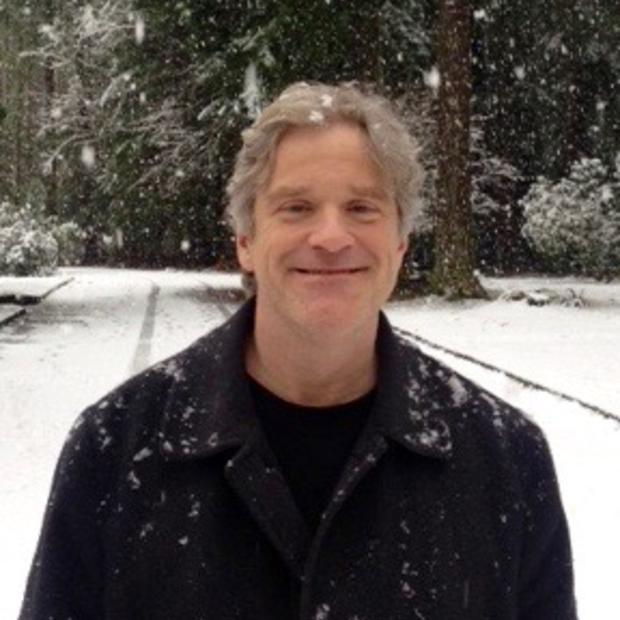How to characterize the Amanda Knox drama? An Italian-murder version of Midnight Express and Kafka's The Trial? The first line of Kafka's story is an evocative expression of injustice (and maybe the one-sentence read on Knox): "Someone must have been telling lies about Joseph K., for without having done anything wrong, he was arrested one fine morning."
Tim Egan of the New York Times captures the essence of the Knox trial and its aftermath. "There is much to be learned from this case: about the strengths and fallibilities of two ancient legal systems, about human prejudice, about honor and retribution. And yes — about justice," Egan writes. There is an empathy factor at work: the young UW student from Seattle, the junior year abroad, the intersection of fate, tragedy, and judgment. How much of the narrative is also informed by Knox's privileged status, and is it unseemly to celebrate an aquittal — even one a long time coming — when another young person was brutally murdered?
"That Amanda Knox will soon be breathing the marine air of her home in Seattle again gets much blood stirring. One camp sees a beautiful killer walk free, backed by a global media cabal that had initially turned her into a villainous cartoon. Another sees a gross miscarriage righted, a victory that should not diminish the memory of the victim," Egan writes.
It's election day in Alaska and the outcome could determine the future of the Pebble copper and gold mine, slated to become North America's biggest open-pit mine. As Sean Cockerham of the Anchorage Daily News writes, "The initiative seeks to change borough law and forbid granting of permits for any big mine that would have a 'significant adverse impact' on salmon streams. If the initiative passes, it will go to court. Gov. Sean Parnell's attorney general argues it would be unenforceable because the Alaska Constitution gives the Legislature, not localities, authority over state resources."
The Pebble mine is one of those rich political fights that illustrates the muscle of the salmon industry (which is opposed because of the mine's proximity to the fishery), conservationists, and mining interests. Putting the kibosh on the Pebble mine has also become a pet cause of Washington Sen. Maria Cantwell. Other Alaska votes today: Liquor sales in Barrow and a plastic-bag tax in Juneau.
There is something unnatural about Rep. Jay Inslee playing the hard-negative candidate in his 2012 gubernatorial bid. As the Seattlepi.com's Joel Connelly writes, Inslee has adopted a "hot tone" after polls show him trailing Republican Attorney General Rob McKenna: "It’s standard-issue political boilerplate using familiar tactics — the petition urging the other guys to reform their nefarious ways, the call for an opponent to 'come clean,' and urgent warnings prompting calls for money."
Inslee's campaign MO seems inconsistent with his public personality. Imagine an avuncular Secretary of State Sam Reed as Nixon or a shrieking J.P. Patches demanding that Gertrude "come clean." (okay, maybe the latter is conceivable). With thirteen months to go before the election, the Inslee camp would be wise not to forget that for voters, authenticity is more than a catchphrase.
The FBI is under a local microscope by a coalition of religious and civil rights organizations for how it trains law enforcement regarding Islam. As Susan Kelleher of the Seattle Times reports, "In a letter to the U.S. Department of Justice's Civil Rights Division, the group accused the FBI of hiring anti-Islam experts to teach law-enforcement agents about Islam and of focusing a disproportionate amount of the training on the threat from Islamic terrorists." The FBI responded with a statement that "the FBI is currently conducting a comprehensive review of all training and reference materials that relate in any way to religion or culture." One unsolicited suggestion: The feds can always hire UW and WSU Islamic scholars, who will likely lose their jobs in the next round of draconian higher-ed cuts.
Lastly, Oregon's U.S. Attorney, Amanda Marshall, was just confirmed by the U.S. Senate. That's correct: She was just confirmed. As the Oregonian's David Sarasohn reports, "To get nominated and confirmed as President Obama's choice as U.S. attorney took Marshall about two-thirds of Obama's term. Instead of a demonstration of how an elected president gets to staff his administration, the episode displays just how seriously our system has broken down."
So, what went wrong? For one, it took until 2010 for the Obama Administration to even nominate Marshall (an overly inclusive, writ-large version of the Seattle way). After that, well, Marshall hit the legislative morass. "It's hard to know why it then took the Senate nearly 11 months to deal with it, although the unanimous votes suggest there were no serious questions. When Marshall was finally confirmed, she'd been pending longer than any other remaining nominee, and only one other U.S. attorney nominee remains to be confirmed," Sarasohn notes. At least Marshall can take comfort by reading Kafka (see above).
Link summary
New York Times, "Lessons from the Amanda Knox case"
Anchorage Daily News, "Pebble, liquor, bags on ballots across Alaska Tuesday"
Seattlepi.com, "Inslee goes hard negative 13 months to election"
Seattle Times, "Investigation sought in FBI training about Islam"
Oregonian, "Oregon's U.S. Attorney, at long last"


